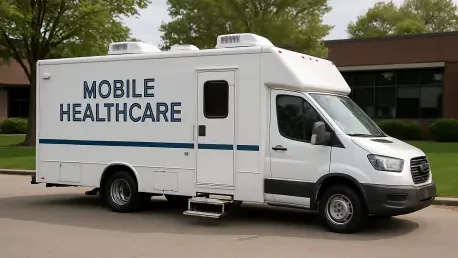Imagine a neighborhood where over 13% of residents lack access to a family doctor, and the nearest clinic feels like a world away due to physical, financial, or social barriers. In Scarborough, a vibrant yet underserved area of Toronto, this is the reality for many, with more than half a million Torontonians currently without primary care—a figure expected to double in just a few years. Innovative solutions are urgently needed. Enter the mobile health unit, a groundbreaking initiative by the Scarborough Centre for Healthy Communities (SCHC), designed to deliver essential medical services directly to those who need them most. This approach is redefining healthcare by meeting people where they are, literally and figuratively, in communities like Kennedy Park. By addressing not just medical needs but also the broader social challenges that impact health, this program is proving to be a lifeline for residents who might otherwise fall through the cracks of a strained system.
Breaking Barriers with On-Site Care
One of the most significant impacts of mobile healthcare in Scarborough is its ability to dismantle the obstacles that prevent residents from seeking medical attention. Many individuals in Neighborhood Improvement Areas such as Kennedy Park, West Hill, and Woburn face challenges like mobility issues, distrust in traditional healthcare systems, or simply the inability to prioritize health over daily struggles like food insecurity. SCHC’s mobile unit, operating five days a week, brings vital services—ranging from blood pressure checks to mental health support—right to their doorsteps. This direct approach not only makes care accessible but also fosters trust by creating personal connections between healthcare providers and community members. For those with disabilities or elderly residents hesitant to travel, having a familiar face provide care in a comfortable setting can be transformative. Beyond medical aid, the unit offers practical support like clothing and snacks, addressing immediate needs while building a foundation for long-term health engagement.
A Model for Systemic Change
Looking at the bigger picture, mobile healthcare in Scarborough represents a shift toward more equitable and community-focused medical delivery, setting an example for broader systemic reform. The initiative aligns with recent efforts like Ontario’s Primary Care Act, which prioritizes convenience and inclusivity in healthcare access. SCHC’s plans to launch a full-service mobile clinic, complete with advanced medical equipment, signal an exciting expansion of this model. This upgraded unit will further bridge gaps by providing more comprehensive care on-site, reducing the burden on overcrowded emergency departments. More than just a temporary fix, this approach highlights the limitations of traditional healthcare models for marginalized populations and underscores the need for adaptable solutions. By integrating social support with medical services, such programs tackle immediate health crises while paving the way for sustained trust and engagement. Reflecting on these efforts, it’s clear that tailored interventions make a profound difference in addressing diverse community challenges.









